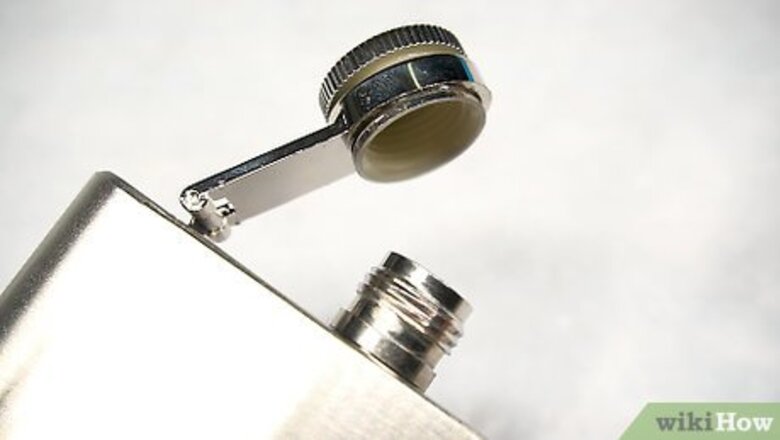
views
Washing the Inside of the Flask
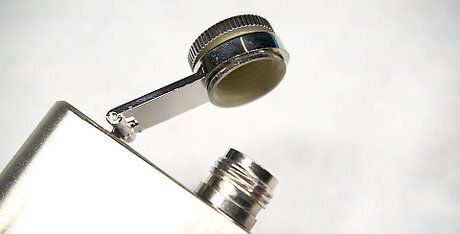
Avoid letting alcohol or other liquids sit in your flask for more than 1-2 days. Try to avoid letting alcohol or other liquids besides water sit in your flask for several days. Even if you can’t get around to thoroughly washing it immediately, rinse the flask out with clean water to make the cleaning process easier.
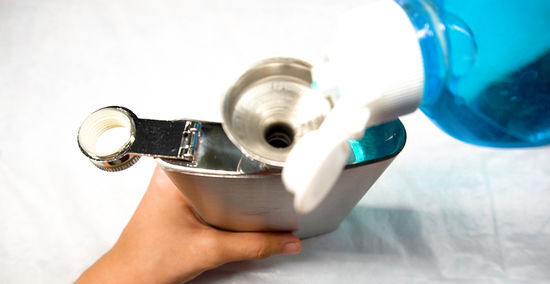
Fill the flask ¾ of the way up with soap and water. Uncap the flask and pour water into it, adding 2-3 drops of a dish soap. Be careful not to fill it all the way up, leaving roughly ¼ of the flask empty so that the liquid has room to move around. If you’re not sure when the flask is filled up ¾ of the way, fill it all the way to the top and then pour a little bit of liquid out. You can use other liquids besides soap and water, including vinegar or boiling water. Avoid using chlorine bleach to clean the flask as this may damage it.
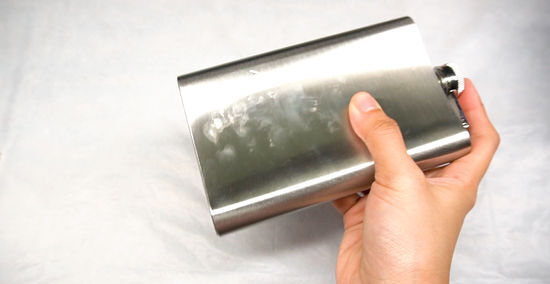
Attach the cap securely and shake the flask for 20-30 seconds. Screw the cap onto the flask tightly enough so that liquid won’t seep through, and then vigorously shake the flask for at least 20 seconds. This helps ensure the interior is being thoroughly cleaned.
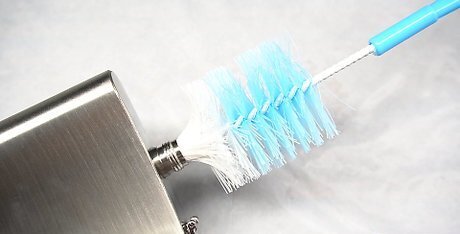
Use a soft bottle brush to clean the inside, if desired. If you want your flask to be super clean, use a bottle brush with soft bristles to clean the inside of the flask. You may need to pour out a bit of your cleaning liquid to make the process easier. A bottle brush with soft bristles is important so that the brush doesn’t scratch the flask. Baby bottle brushes are a good option for this.
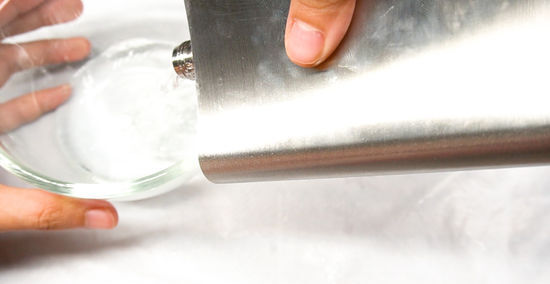
Rinse the inside of the flask with warm water. Uncap the flask and pour out all of the liquid cleaner that was inside. Fill the flask up with clean warm water to rinse out the cleaning liquid. You may want to rinse it out several times to ensure it’s completely clean and the cleaning liquid isn’t lingering. A good way to know that all of the cleaning liquid is out is to put the open flask under running water and let it fill up. Once the flask starts overflowing, it’s likely that it’s clean.
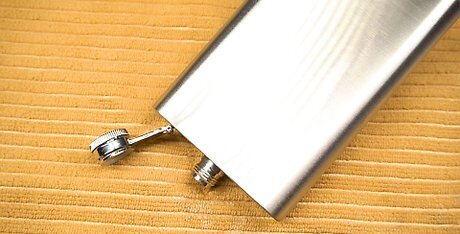
Flip the flask over to let it dry. Leave the flask uncapped and place it on a clean towel. Leave it upside down overnight to let it dry completely. You can also twist a paper towel and stick it in the flask overnight, as the paper towel will absorb the moisture.
Choosing a Rinse
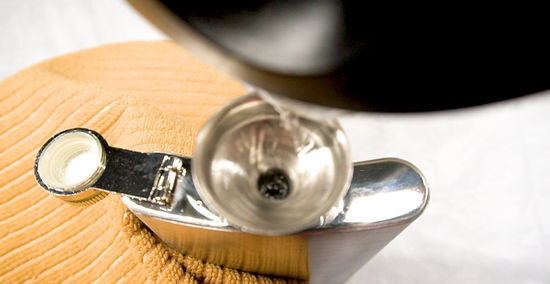
Fill the flask with boiling water to sterilize it. Bring a small pot of water to a boil and use a funnel to carefully pour the water into the flask. Use a towel or oven mitt to hold the flask so that you don’t burn your hands while handling the water. The boiling water will help rinse the flask of any other liquids or dirt.

Add a few drops of mild detergent to warm water for a quick fix. Fill the flask ¾ of the way with warm water, and then add 2-3 drops of a mild dish detergent. These two liquids will mix together and clean the flask once it’s capped and shaken. Make sure you wash out all of the soap when rinsing the flask.
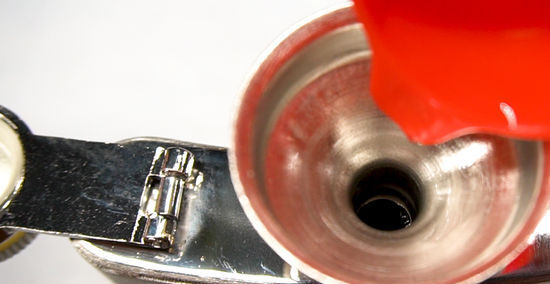
Rinse the flask out with vinegar and water to get rid of any smells. Vinegar is an excellent cleaning solution, and it also eliminates any lingering odors. Create a solution with 1 part water and 1 part white vinegar, mixing it together before pouring it into the flask. If you want a stronger solution, alter the proportions so there’s more vinegar than water.
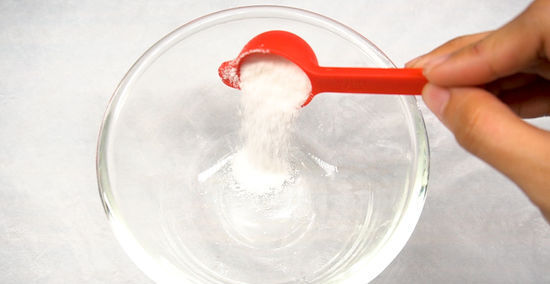
Create cleaning friction by using salt, rice, or baking soda. Choose one of these ingredients and mix it with water. Once you pour the mixture into the flask and shake it, it will act as a mild abrasive and clean the interior of the flask well. There isn’t a right or wrong proportion to use, but consider using ¾ water and ¼ of the abrasive. For example, pour a couple spoonfuls of rice into a flask halfway full of water and shake it up once capped.
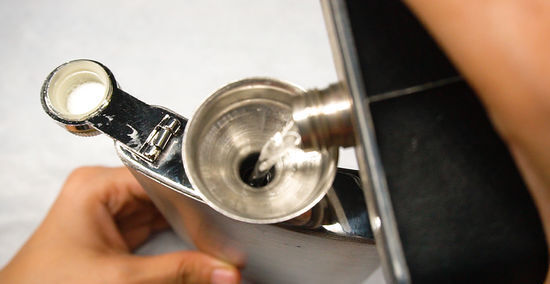
Opt for an alcoholic sterilizer by using vodka. Either add some water to the vodka before shaking, or go with straight vodka for a more pure clean. If you do opt for straight vodka, there’s no need to fill the flask ¾ of the way full--⅓ of the way full will work. Make sure you rinse the vodka out immediately, otherwise your flask will keep the strong smell.
Cleaning the Exterior
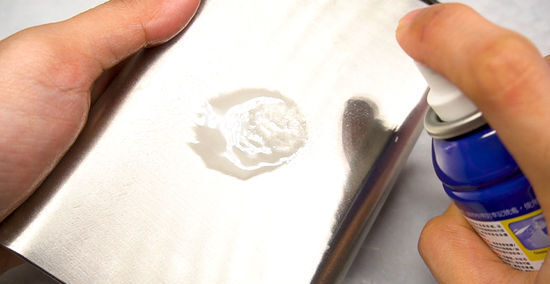
Use polish to clean a flask made of silver or pewter. Make sure you purchase a silver polish for silver flasks and a pewter polish for pewter flasks. Follow the instructions on the polish, often only using a small dab placed on a clean towel, to rub the flask clean. These polishes can be purchased at a home improvement store, big box store, or online.
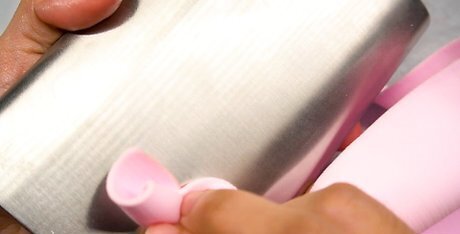
Purchase a special polishing cloth to clean up surfaces easily. These cloths don’t require any water and can clean markings on flasks made of silver, gold, pewter, and other metals. Rub the exterior of the flask using the cloth; the darker the cloth gets, the better it’s working. Purchase a polishing cloth from a home improvement store, big box store, or even online.
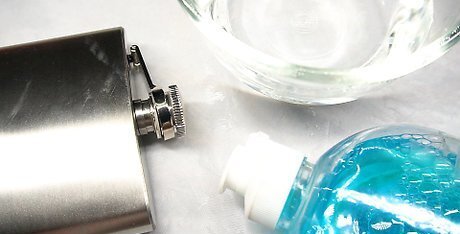
Clean a stainless steel flask using soap and water. Stainless steel is designed to be very durable and easy to clean, so any dirt or markings should come off with warm water and a mild detergent. Use a soft sponge to clean the surface, if desired. Be careful not to use abrasive cleaners or brushes, as they may scratch the flask.
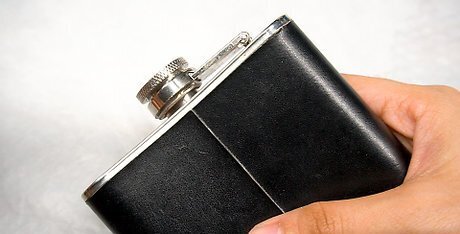
Avoid getting leather flasks excessively wet. The water will damage the leather or cause spots to appear. If your leather flask gets dirty, look into purchasing a leather cleaner or try to spot clean the leather using a damp paper towel. Avoid rinsing the leather under running water.










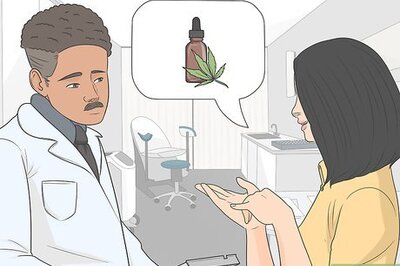


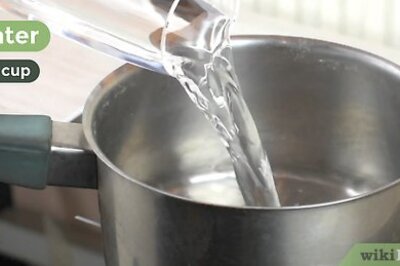


Comments
0 comment